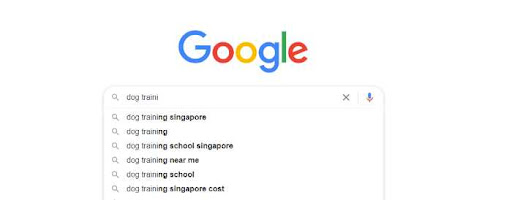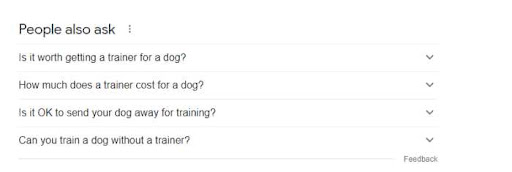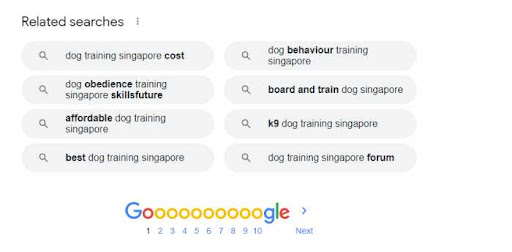Google’s algorithm is constantly changing and evolving, which can be both good and bad for website owners and SEOs. However, one thing that has remained fairly steady over the years is the use of Latent Semantic Indexing (LSI) keywords.
These are closely related keywords that are used to help Google’s algorithm better index and rank your site.
LSI keywords are simply a way of telling Google what your content is about.
By including these keywords in your content, you can help Google better understand the topic of your article and index it more accurately.
In turn, this can help improve your site’s ranking for certain keywords.
What Are LSI Keywords?
LSI keywords are terms and phrases that are semantically related to your main keyword or topic.
For example, if you were writing an article on the topic of “dog training”, LSI keywords would include “teaching your dog to sit”, “dog training collars” and so on.
Some website owners think that It is just random words that the search engines have chosen to support a particular keyword, but this is not the case.
It is actually closely linked with human psychology, as they take into account what people’s search habits and interests are when they’re searching for information on a specific topic.
At their core, LSI keywords are designed to help the search engines understand better the user’s intention behind their search.
But what does this mean?
As an example, let’s say you’re searching for “dog training”, and the search results show videos by YouTube stars like Pampered Pawz and The Dog Training Dude.
While both of these channels do a great job of teaching dog owners how to train their dogs, they each have different focus areas.
Pampered Pawz focuses on more general dog training topics, while The Dog Training Dude covers specific topics like obedience training and tricks.
What Is Latent Semantic Indexing?
Latent Semantic Indexing is a technique used by Google (and other search engines) to understand the relationships between terms and concepts in a piece of content.
It looks at how often certain terms are used in relation to one another and tries to work out the meaning of the text as a whole.
This helps Google to determine the intent of a piece of content, which can then be used to rank that content for relevant keywords and phrases.
Latent Semantic Index was first developed in the late 1990s and has since been used by Google to help improve its search results.
How Does Latent Semantic Indexing Work?
In order to understand how it works, it’s important to first consider how search engines work.
In the early days of Google, all that search engines could do was parse single words and phrases. Think about a time before Google when you would use a search engine like AltaVista.
If you wanted to find information on the Titanic, you would type in “Titanic” and get a list of results based on how many times that word appeared on different web pages.
Google changed all that by using the concept of PageRank to analyze different web pages and determine which were the most relevant for a given search.
However, Google’s algorithm was still fairly limited at this point. It could only take into account the individual words on a page and not the relationships between those words.
This is where Latent Semantic Indexing comes in.
It takes individual words and phrases and determines how they’re used in a piece of content.
It then looks at the relationships between those words and phrases, in order to understand the meaning of the text as a whole.
This allows Google to determine how relevant your article is for a given search.
If someone searches for “dog training”, Google can look at your article and determine that it’s relevant to their query.
What Are The Benefits OF Using It?
1. Using LSI keywords can help you rank for more relevant keywords.
2. It can help Google understand the meaning of your content, and match it with relevant searches.
3. LSI can help improve the quality of your traffic, as it ensures that you’re attracting visitors who are interested in what
How Does Latent Semantic Indexing Affect SEO?
Latent Semantic Indexing can have a big impact on your SEO efforts, as it can help Google to better understand the meaning of your content.
This, in turn, can help you to rank for a wider range of keywords and phrases.
To make the most of Latent Semantic Indexing, it’s important to focus on creating high-quality, well-researched content.
This will help Google to understand the relationships between the different terms and concepts in your article, and make it more likely to rank for relevant keywords.
It’s also important to use a variety of different terms and phrases within your content, in order to help Google understand the relationships between them.
Google & LSI Keywords
Google has been using LSI keywords for many years now, and it is thought that they are a significant ranking factor.
However, there is no definitive evidence to suggest that Google uses LSI keywords in their algorithm in exactly the same way as traditional keyword tools.

Indeed, some experts believe that Google uses other metrics, such as user engagement and dwell time, to understand the meaning of a piece of content.
Why are LSI keywords important?
LSI keywords are still an important part of SEO, as they help to improve a website’s relevancy and overall quality.
To find these keywords, you can use dedicated keyword research of any SEO strategy despite this uncertainty.
By including relevant, semantically-related terms and phrases in your content, you can help Google to better understand your topic, which can improve your ranking for relevant keywords and phrases.
7 Ways How to Find And Use Related Words and Phrases
If you are familiar with a topic, you can easily add related keywords or phrases to your content.
However, if you’re new to a topic or not sure which keywords will be most relevant to your audience, there are some ways that can help.
1. Use common sense
One of the simplest ways to find LSI keywords is to use your own common sense and brainstorm relevant terms and phrases related to your main keyword.
For example, if you were writing an article on the topic of “dog training”, some relevant LSI keywords could be “dog obedience training”, “puppy training” and “how to train your dog”.
2. Use Google Autocomplete

Google Autocomplete is a great way to find LSI keywords.
Simply start typing your main keyword into the Google search bar and see what terms and phrases Google suggests.
3. Use Google’s Related Searches
Another great way to find LSI keywords is to use Google Related Searches.
Simply enter your main keyword into Google and scroll to the bottom of the search results page. Here you will see a list of related searches, which are often excellent LSI keywords to target.

4. Use Google’s People Also Ask Results

Google’s “People Also Ask” results are a great way to find LSI keywords.
Simply enter your main keyword into Google and scroll down to the “People Also Ask” section.
Here you will see a list of questions that are related to your main keyword.
These questions can often be used as LSI keywords.
5. Look at knowledge bases
Other online resources, such as knowledge bases, glossaries, and specialized websites can also be a great source of LSI keywords.
For example, if you were writing about dog training, you could look at popular websites like Dogtime, PetMD, and Vetstreet for relevant terms and phrases.
You could also search for “dog training glossary” or “how to train a dog” on Google and see what types of resources it returns.
6. Use Google’s Natural Language API
Google’s Natural Language API is another great tool for finding LSI keywords.
This powerful tool allows you to enter a piece of text and analyze it in detail, looking at which terms and phrases are most closely related.
You can then use this information to identify excellent LSI keywords that you can incorporate into your content.
7. Use an LSI keyword tool
Another option is to use a dedicated LSI keyword tool, which can quickly and easily generate lists of semantically-related keywords and phrases for any topic.
These tools are often very accurate, and many provide additional metrics such as search volume and competition level.
Some popular LSI keyword tools include Moz Keyword Explorer, SEMrush Keyword Magic Tool, and LSI Graph.
Overall, LSI keywords are an important part of any SEO strategy, as they help to improve a website’s ranking by improving its overall quality and relevancy.
By using research tools and other techniques, you can easily find relevant LSI keywords to target in your content.
Whether you are writing an article, creating a video script, or optimizing your website for search engines, including these keywords can help you to rank higher and reach your target audience more effectively.
What are some other tips for making use of LSI keywords?
In addition to the tips above, here are a few other things to keep in mind when making use LSI keywords in your content:
- Before you begin writing, do some research on your topic and identify the main keyword that you want to target. Then, make a list of semantically-related keywords and phrases that you can include in your content.
- When adding LSI keywords to your content, try to do so in a way that sounds natural and is relevant to the topic. Avoid using generic or overused keywords, as this can make your content sound spammy.
- Don’t stuff your content with too many LSI keywords, as this can lead to keyword cannibalization and decreased search engine relevancy. Instead, focus on quality over quantity.
- Use a variety of different LSI keywords throughout your content, and be sure to mix up your keyword placement. This will help to improve the overall quality of your writing, as well as your search engine rankings.
Overall, using LSI keywords in your content is an important part of any SEO strategy.
By following the tips above, you can easily incorporate these keywords into your writing in a way that is both natural and effective.
LSI Keywords FAQs
How do I use LSI keywords in an article?
One of the best ways to use LSI keywords in your content is to incorporate them naturally into your writing.
This means that you should include them in a way that makes sense within the context of your article, and you should also make sure that they are relevant to the topic at hand.
Do LSI keywords matter?
Yes, LSI keywords are an important part of SEO and content marketing.
By including relevant, semantically-related terms and phrases in your content, you can help Google to better understand your topic and improve your ranking for relevant keywords and phrases.
What are the key problems of LSI?
There is no definitive evidence to suggest that Google uses LSI keywords in its algorithm, which can make it difficult to know how best to use them in your SEO strategy.
Additionally, LSI keywords can be difficult to identify and incorporate into your content, which can lead to issues with keyword density and keyword cannibalization.
Finally, it can be challenging to determine the exact impact of LSI keywords on your search rankings, which can make it difficult to know whether or not they are worth the effort.
How many LSI keywords should I use?
There is no magic number of LSI keywords to use in your content, but as a general rule, you should aim to include 2-3 per 100 words.
This will ensure that your content is relevant and semantically related to your main keyword, without overdoing it and risking keyword stuffing.
Do LSI keywords have any disadvantages?
One potential disadvantage of using it is that it can be difficult to incorporate it into your content in a way that sounds natural.
Additionally, if you stuff your content with too many LSI keywords, you run the risk of keyword cannibalization and decreased search engine relevancy.
Finally, it can be challenging to determine the exact impact of LSI keywords on your search rankings, which can make it difficult to know whether or not they are worth the effort.
Conclusion
Overall, I think that LSI keywords are an important part of any SEO strategy. They can help to improve search engine rankings and make it easier for Google to understand your content, which is especially important in a competitive landscape where keyword competition can be fierce.




